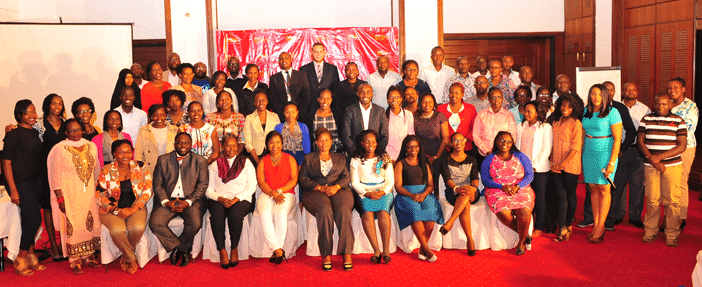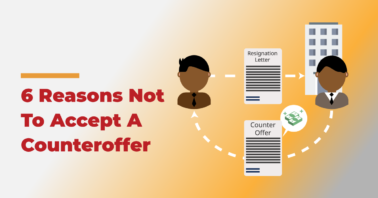The challenges and successes of a multi-generational workplace

It was an exciting Friday morning, with HR professionals trickling in as early as 7:00 am. The C-Level Forum was touted to be one of the most informative events in the HR industry, and it lived up to the expectations of all in attendance.
Led by seasoned HR professionals, the discussion went on to about 1:00 pm with questions, answers and opinions being floated freely to allow for an insightful discourse.

The floor was opened by Resian Leteipan, the Product Manager, BrighterMonday Kenya, with a word of welcome.
Here is a run-through of the tête-à-tête.
Table of Contents
Jackie Ogonji; General Manager Human Resource and Administration, Liquid Telecom

First on the podium was Jackie Ogonji, Jackie Ogonji (OGW), an experienced HR practitioner and strategist. Jackie’s keynote presentation was aptly titled ‘Talent Management in a Multi-Generational Workspace’. The aim of this presentation was to help the attendees to understand:
- What is talent?
- Ideas for different talent strategies
- The multi-generational workplace
- Creation of an optimal workspace for multigenerational staff
Jackie started the presentation by asking members of the audience to state something that was not commonly known. There were many answers from the audience including her own; “When you accidentally text the wrong person, simply stop the text from being sent by quickly turning on the Airplane mode and then deleting the message”. This kicked off an interactive and informative 1-hour session and at the end of it all, partakers picked up a few lessons.

The first is that the workplace is now a mix of 5 generations and managers need to learn how to adapt to the changing face of the workplace. It is important to realise that employees from the different generations bring something on board and as such, employers should find innovative ways of doing this.
Interestingly, Jackie quoted, studies which show that 1 in every 3 people, wastes up to 5 hours per week due to chronic, unaddressed conflicts between colleagues from different generations. This shows that handling the workplace with the different generations in mind is important when trying to maximise productivity.
As the workplace is changing, driven by the rapid entrance of later generations, there is need to also change how the working environment looks like, to ensure that everyone fits in. For example, most offices have now adopted the open office plan with a relaxed working environment, fewer barriers, and more gamification.
According to Jackie, one of the sure ways of ensuring that such a workplace is successful is by identifying what motivates who so as to customise rewards. The modern workplace needs to move away from the standard way of offering rewards.
Jackie’s Q&A session
A burning question for Jackie from the crowd focussed on how to ensure that millennials stay on board for longer than they currently are. It was identified that millennials are restless and most will usually not stay in one organisation for more than a year. According to Jackie, millennials crave regular feedback and constant challenge. As such, they need to be actively engaged and brought on board challenging tasks on a regular basis so that they can make an impact, grow their skills and be constantly challenged.
The people in attendance enjoyed Jackie’s session and there were many questions asked with relation to handling the changing workplace. From the questions asked, it also arose that with modern HR management systems, it has become hard to establish human contact with HR managers. From her experience, Jackie explained that establishing human contact should remain a top priority for HR managers. The human aspect needs to remain and this can easily be done by establishing common areas in the office such as eating areas and places where people can meet and have laid-back discussions.
She also explained that as HR managers, it is important to occasionally walk to people and talk to them about non-work related matters so as to establish relationships.
Stewart Samkange; Human Capital & Talent Manager at Oracle

Next on the podium were Stewart Samkange, and Brian Onyango. Theirs was a subject matter on ‘Human Capital Management Solutions’. It was a lively discussion, with Stewart reminding the audience to chant “Re-think HR”, every so often.
According to Stewart, the modern HR is not a prefect anymore. “The modern HR manager is a business partner who should use modern management tools to monitor employee progress and come up with strategies to help employees and the business to grow,” said Stewart. Revolutionary management tools help HR practitioners to collect and analyse data so that they can make business cases to support any change in strategy.
Stewart’s presentation dwelled on modern HR management systems developed by Oracle to facilitate information sharing. The systems range from career planning to development, talent review to succession, and employee alignment to work-life alignment. The purpose is to track the entire lifecycle of an employee in an organisation.
These systems help HR managers and line managers make important decisions such as who to promote and at what point, who to hire and the skills they require, who to be moved from one department to another and why.
In the modern workspace, HR decisions should be guided by informed data and evidence-based decisions and this can be greatly assisted by HR management systems that do more than allowing employees to only apply for leave.
The systems also help employers and employees to merge their interests. An example given by Stewart is that if an employee sets a goal to lose weight, they can enter this goal in the system and track the progress closely. It also encourages employees to use the systems more often. Additionally, the systems can be customised to ensure that they meet the organisation’s unique needs. The best part is, these systems democratise information in the workplace.
Stewart’s Q&A session
Most participants asked questions around the safety of the systems, seeing as they would be accessible to many people. According to Stewart, Oracle’s systems are grade 4 in terms of security and that is the basis of the whole company. As such, the systems are extremely safe.
A question was also asked on how updates are conducted to which Stewart answered that updates are done on a regular basis and they are free. A client also gets notifications to update and this makes it hard to miss out on an important update.
Panel Question and Answer Session

The conversation ended with a question and answer session with a panel of 4 consisting of seasoned HR practitioners and consultants; Stewart Samkange, Sarah Richson, Jackie Ogonji and Anne Kabinga, and Elly Mathenge, the Mcee, as the moderator. The questions included:
Question (Q):How do you ensure that there is a human aspect to HR when you are using HR management systems?
Answer (A): Ensure that you interact with your employees more often because people connect to people first before they connect to company policies. Also, learn the people you work with and engage them accordingly.
Q: What is the best approach to recruitment?
A: The best approach is to understand that those who know ‘what’ get the job, those who know ‘how’ get the job done, and those who know ‘why’ are the bosses of those who know ‘what’ and ‘how’.
Q: Who should manage talent in an organisation?
A: The line manager or the HR? The HR should empower line managers to be able to hire and manage their own talent because they are the ones who know what exactly they need.

The consultation was also complemented by networking sessions accompanied by bittings to keep the attendees energised. Finally, the participants got certificates and goodies. The certificates earned them CPD points. We wrapped it up with a lunch session where attendees ate to their fill and networked.
Make a date with us at the next edition of an enlightening forum for information, networking, goodies, and of course, great 5-star food.
A video recap of the C-Level Forum:
Download the presentations below





